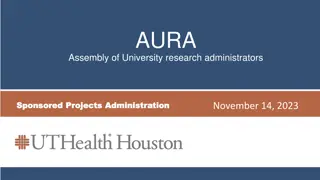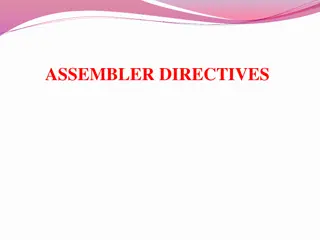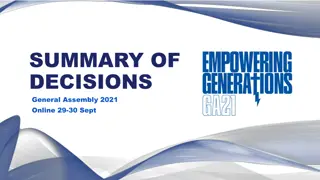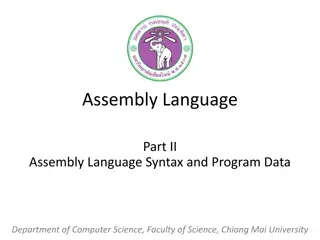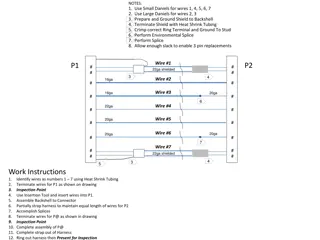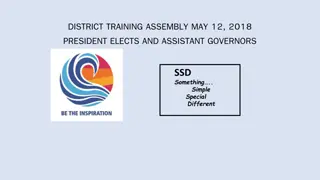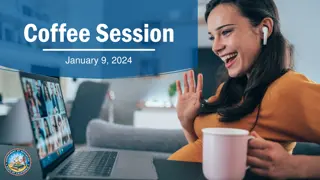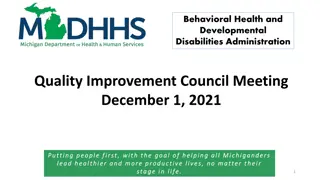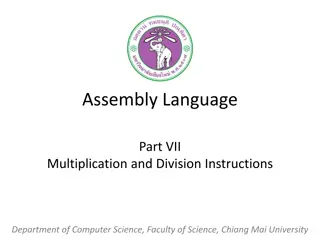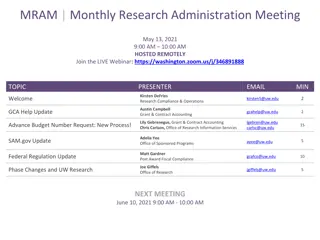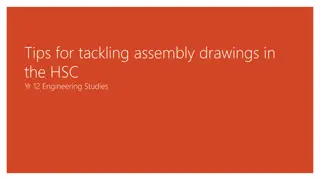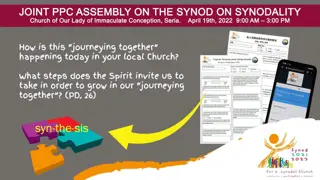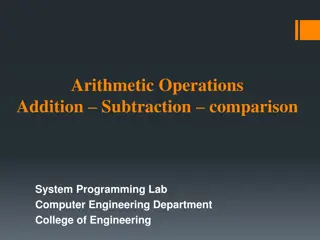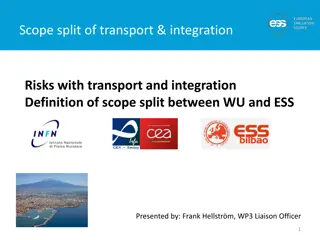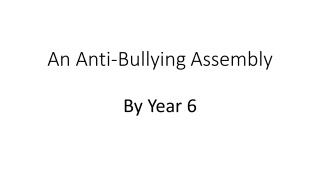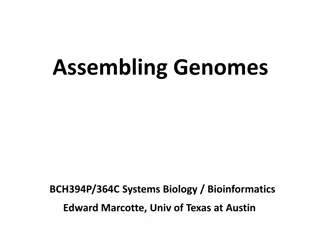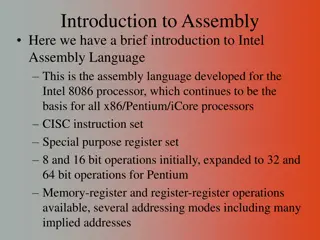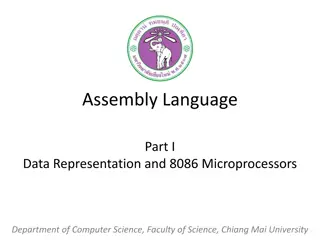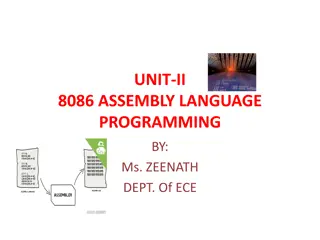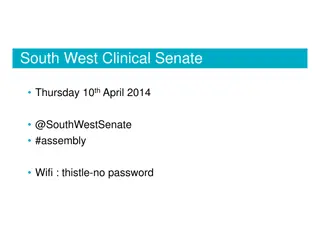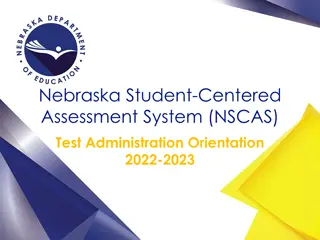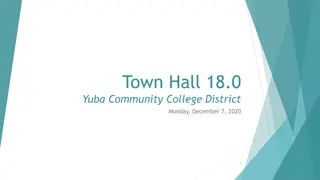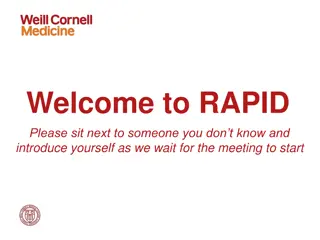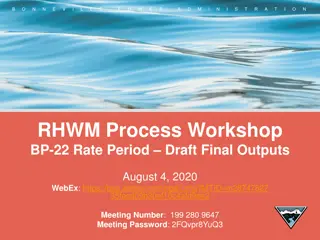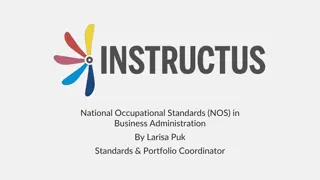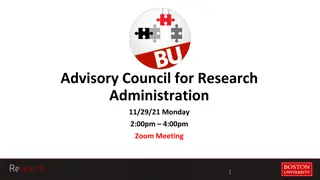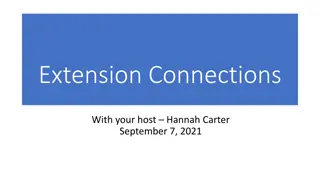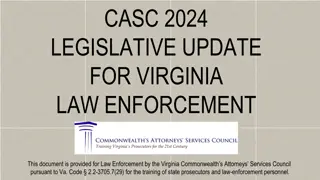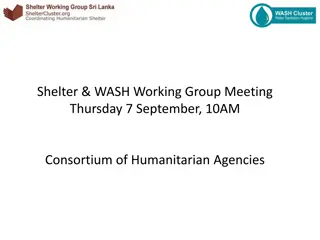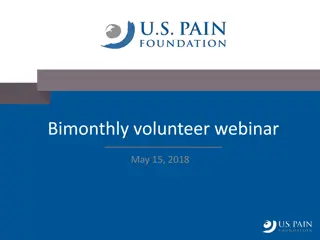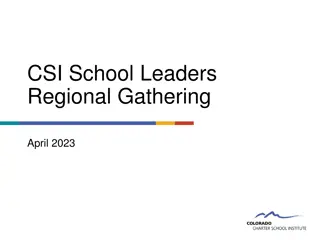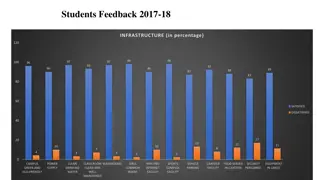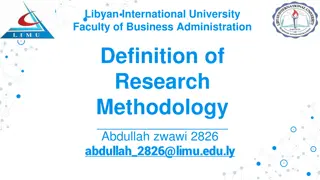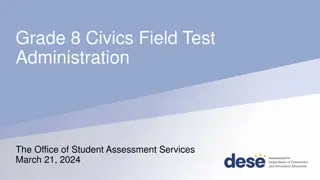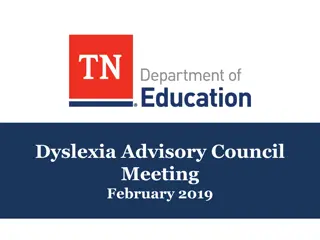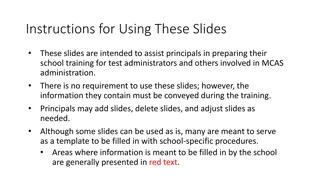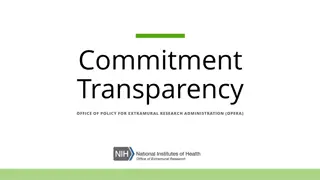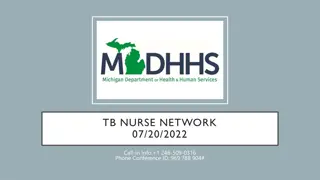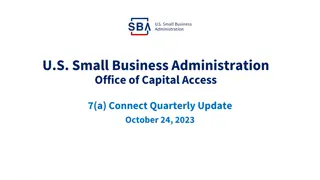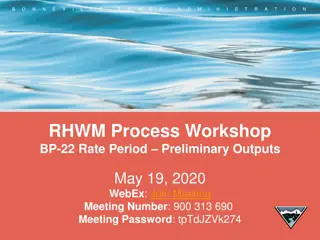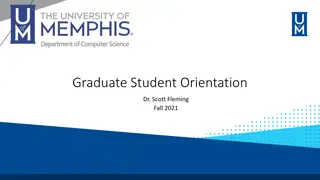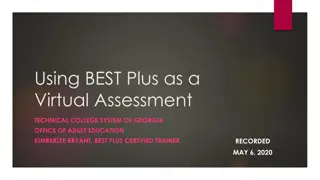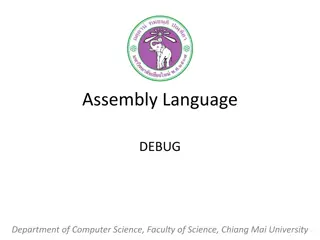AURA Assembly - Research Administration Updates and Opportunities
AURA Assembly's recent meeting covered diverse topics such as new staff introductions, FDP updates, grant process improvements, and upcoming internship opportunities. Discussions included roles for becoming a trainer, federal partnership changes, and the timeline for an internship program. Exciting opportunities for involvement and growth were highlighted, emphasizing collaboration and development within the research administration field.
Download Presentation

Please find below an Image/Link to download the presentation.
The content on the website is provided AS IS for your information and personal use only. It may not be sold, licensed, or shared on other websites without obtaining consent from the author. Download presentation by click this link. If you encounter any issues during the download, it is possible that the publisher has removed the file from their server.
E N D
Presentation Transcript
AURA Assembly of University research administrators Sponsored Projects Administration Sponsored Projects Administration May 29, 2024
AGENDA New Staff Introductions Kathleen Kreidler Research Administration Internship Tiffany Sagers FDP Updates and UG Changes Carmen Martinez Grant Process Updates Carmen Martinez NIH Progress Report Reminders Caroline Dietz Agreement Matrix Valerie Bomben AURA Teams Channel Valerie Bomben Q & A All
New Staff Introductions If this is your first AURA meeting: -Unmute yourself, turn on your camera, and please tell us your name department role/title anything else you d like to share
TIMELINE CURRICULUM Application Due June 1, 2024 16 applications received Candidate Interviews June 10-21, 2024 Internship begins September 1, 2024 **Classroom and Hands-on Training** Guest Speakers Webinars Mentorship Networking Opportunities 4 interns in the first cohort.
Are you interested in becoming a trainer? Classroom Trainer Hands-On Trainer In-person (half or full day) Senior Level Role 4+ years of experience In-person (job shadowing) 2+ years of experience All trainers will be paid. Training is in addition to your current workload. Remote training is not allowed. Should have manager approval.
FDP Updates & UG Changes Federal Demonstration Partnership partnership between the federal funding agencies and research institutions to reduce the administrative burdens associated with research administration 350 member organizations Membership meets 3x/year to discuss agency updates, process improvements and makes recommendations to federal partners
FDP May 2024 Big changes to Uniform Guidance Effective for all Federal awards issued on or after October 1, 2024 Financial principles and subrecipient policies reflect major updates Federal Agencies (NIH, NSF, DoD, etc) have until May 15, 2024 to notify OMB of their implementation plans Guidance to be released through agency updates (haven t seen anything yet agencies are still updating) Some federal agencies may elect to apply the 2024 Revisions to Federal awards issued prior to October 1, 2024 (still waiting on agency updates)
Summary of Important 2024 UG Changes: Change Benefits Considerations **(200.100) Increase Capital Equipment to $10,000 Fewer items listed as capital equipment May impact budgets with total cost limitations (200.308) Changes in subcontracts require Prior Approval when changing the scope of activities or if the agency puts it in the T&C of the award Limits seeking Prior Approval to rebudgeting/changes more closely related to programmatic goals Subrecipient monitoring now includes how expenditures tie to program objectives and performance (200.413) Charge Admin Staff salaries to grants (200.472) Charge closeout costs to grants Charge support staff salaries when it directly benefits the project Need to document the direct benefit to the project and confirm the costs are not already recovered under F&A (200.414) Increase de minimus rate from 10% to 15% Subrecipients without a negotiated rate can collect more IDC May impact budgets with total cost limitations
Summary of 2024 UG Changes Change Benefits Considerations (Appendix I) Revised the NOFO to contain important information at the top of the announcement Provides common/consistent information for funding opportunities none **(Appendix II) Increase IDC recovery to first $50,000 on subcontracts Cover more of the admin costs associated with subcontracts May impact budgets with total cost limitations **UTHealth can t implement until 2026 Agency guidance from NIH, NSF, DOD, etc. will be released before the 10/1/24 effective date.
Grant Updates 1. Forms-I Package to be released for NIH Effective for applications submitted for due dates on or after January 25, 2025. FORMS-I will incorporate updates related to multiple NIH initiatives: Improvements to the NIH Fellowship Application and Review Process. Updates to NRSA Training Grant Applications. Adoption of the Common Forms for Biographical Sketch and Current and Pending (Other) Support for submission of applications and RPPRs by May 2025. Application guide and forms packages will be available in Fall 2024.
2. Common Forms for the Biographical Sketch and Other Support Common Forms harmonize content requirements for both forms for use by Federal Research Funding Agencies Both forms include the requisite certification from NDAA 2021, Section 223 regarding information being accurate, current and complete and that the individual is not a party to a MFTRP Must be created in SciENcv required for NSF proposals due on or after May 20, 2024 NIH will implement for submission of applications and RPPRs on or after May 25, 2025
3. Changes to Resubmission Applications effective May 25, 2024 (NOT-OD-24-061) The use of markups should not be used to identify changes in Resubmission applications. Changes made to a resubmission application should only be outlined in the Introduction attachment. Must include a summary of substantial additions, deletions, and changes to the application. Must include a response to weaknesses raised in the Summary Statement. Unless otherwise indicated in the Table of Page Limits, the Introduction may not exceed one page. 4. Increased Childcare Subsidies for NRSA Fellowships and Training Grants (NOT-OD-24-116) 4/3/24: NIH announced a $500 increase in childcare subsidies for scholars supported on NIH Kirschstein National Research Service Awards NRSA fellows may request $3000 (up from $2500) in FY24. Increase is applicable to all FY24 NRSA awards NIH will revise eligible training and fellowship awards that were issued prior to this announcement to reflect the increase in support
RPPR Due Dates RPPR Types SNAP (Streamlined Noncompeting Award Procedures): 45 days before end of budget period Non-SNAP: 2 months before end of budget period Interim and Final RPPRs: 120 days after the end of the period of performance Multi Year Funded RPPRs: Due annually on or before Anniversary Date Best Practice: Route to SPA within 10 days of due date Examples (Read NoA, Section 2 and 4) SNAP: R01, R21, R35, K01 Non-SNAP: U24, P01 Interim: Renewals and Type 4 continuations (Prefix of 2 or 4) Final: All completed grants Multi Year: RF1, some R21 and R03
RPPR Due Dates RPPR Types SNAP (Streamlined Noncompeting Award Procedures): 45 days before end of budget period Non-SNAP: 2 months before end of budget period Interim and Final RPPRs: 120 days after the end of the period of performance Multi Year Funded RPPRs: Due annually on or before Anniversary Date Best Practice: Route to SPA within 10 days of due date How to Access RPPRs SNAP/non-SNAP: RPPR module or PI Status Screen Interim and Multi Year Funded: PI Status Screen Only Final RPPR: Status Screen: Initiate Closeout
RPPR Due Dates RPPR Types RPPRs due over the next year 35 30 RPPRs due in June Due Initiated With SPA Submitted 25 20 15 June 1 6 6 0 0 10 5 June 15 20 16 1 1 0 Best Practice: Route to SPA within 10 days of due date
Reporting Publications NIH Public Access Policy: To advance science and improve human health, NIH makes the peer-reviewed articles it funds publicly available on PubMed Central. The NIH Public Access Policy requires scientists to submit final peer-reviewed journal manuscripts that arise from NIH funds to PubMed Central immediately upon acceptance for publication.
Reporting Publications Identifying issues early Non-Compliant: Generates a Warning on the RPPR and an automatic email upon RPPR submission The publication must be made Public Access Compliant before a continuation can be issued If less than 90 days since publication, the status will automatically update to In Progress once the compliance process is initiated. If greater than 90 days since publication it can take up to 6-8 weeks before the publication is considered Public Access Policy Compliant
Reporting Publications Any time a NIH-funded publication is accepted for publication, plan for Public Access Compliance from Day 1 More Information on making publications Public Access Compliant is available at: https://sharing.nih.gov/public-access-policy Public Access Policy-Compliant Statuses for Publications Associated with a RPPR: Complete In Process at NIHMS PMC Journal In Process
Effort Section D. Participants: Reported Effort and Other Support Section D.1 What Individuals have worked on the project? Provide or update the following information for: 1. program director(s)/principal investigator(s) (PDs/PIs); and 2. each person who has worked at least one person month per year on the project during the reporting period Example: Reported effort, .7 CM is greater than a 25% reduction from the committed level of 1.8 CM. Prior approval is needed in advance of effort reductions for named senior/key personnel
Effort Section D.2c Changes in Other Support Has there been a change in the active other support of senior/key personnel since the last reporting period? If yes, upload active other support for senior/key personnel whose support has changed and indicate what the change has been Other support information should be submitted only for new senior/key personnel and when there has been a change in other support for the PD/PI or those individuals considered by the recipient to be key to the project Senior/key personnel are those identified by the recipient institution as individuals who contribute in a substantive measurable way to the scientific development or execution of the project, whether or not salaries are requested. Other Support is reviewed for: Active projects are listed in alignment with UTStart Format: NIH template: Active, Pending, In Kind, UTHealth required sections Participation in active foreign awards/entities Secondary faculty Appointments (paid or unpaid, list all outside of UTHealth) Committed effort for current and future years Maximum and Minimum Effort, per HOOP93: https://www.uth.edu/hoop/policy.htm?id=1448034 Digital Signatures: Institutional Docusign account: https://inside.uth.edu/admin-tech/e-learning/docusign/
Human Subjects Section G. Special Reporting Requirements G.4 Human Subjects (Access through RPPR or through ASSIST) If conducting NIH-defined clinical research, reporting the cumulative enrollment of subjects and the distribution by sex/gender, race, and ethnicity is required: This requirement includes: Clinical Research: non-exempt non-clinical trials Clinical Trials: 1.4a-1.4d answered Yes If the last competing application was submitted for due dates January 25, 2019 or later, recipients must update enrollment data by submitting deidentified individual-level participant data using the spreadsheet template available in the Human Subjects System (HSS). These data include age and must use the Participant Level Data Template. Age data can not be manually entered = Actual data can not be manually entered any longer. The template is required.
Unobligated Balance G.10.a Is it anticipated that an estimated unobligated balance (including prior year carryover) will be greater than 25% of the current year s total approved budget? If yes, provide the estimated unobligated balance. The total approved budget equals the current fiscal year award authorization plus any approved carryover of funds from a prior year(s). The numerator equals the total amount available for carryover and the denominator equals the current year s total approved budget. Unliquidated obligations (subawards and encumbered expenses through the end of the budget period) are commitments of the recipient and are considered to be obligations and, therefore, should not be reported as unobligated balances. The Unobligated Balance Tool available on the SPA website is a tool to calculate the unobligated balance and excludes unliquidated obligations Caveat: NIH can not see our internal finances and will request follow up if the balance seen in the Payment Management System is greater than 25% of the amount awarded in the past year. Recommendation: If the Overall remaining balance exceeds 25% of the current year award, answer yes with an explanation to detail the unliquidated obligations (encumbered subawards and other costs), estimated invoice amount/timing and estimates of what will remain at the end of the budget period
Coming Soon: NIH RPPRs An updated NIH RPPR Instruction Guide will be posted to the NIH RPPR page upon approval from OIRA, per NOT-OD-24-123, effective for RPPRs submitted on or after October 1, 2024 The updated NIH RPPR Instruction Guide will address the NIH Data Management and Sharing Policy and reporting instructions related to RPPRs For new awards subject to the Data Management and Sharing Policy with upcoming RPPRs: Prior to 09/01/2024: PIs will receive a form to complete for DMS Compliance Starting 09/01/2024: PIs will interact with DEPUT to complete the online form, training to follow Questions? Email me: Caroline.J.Dietz@uth.tmc.edu https://grants.nih.gov/sites/default/fil es/rppr_instruction_guide.pdf
Agreement Reminders/Agreement Matrix
Agreement Reminders Non-monetary Agreement requests require intake information from the department in order to begin a review - Make sure to submit your record otherwise it is not received by the office to begin a review if the agreement is Under Development , SPA doesn t have knowledge of it -Confidentiality, Material Transfer, Data Transfer - Sharing UTHealth CI goes through Tech Management
Agreement Reminders Monetary Agreement requests require an approved proposal record before negotiation begins - Logging is more variable (preaward intake, specialists, departments) - If proposal record is in Agreement in Negotiation, there will be an agreement record linked where SPA is tracking the status of the negotiation - Agreement status of Pending PD Budget Approval implies that the proposal approvals not yet received and the agreement is in a holding pattern
Agreement Reminders **The title of the contract does not always correlate with the terms and conditions of a contract** Agreement Matrix created by Sponsored Contracts team - Agreement Matrix Form **Cost share approvals may be required for non-monetary contracts where UTHealth is obligated to provide data, reprots or contractually make intellectual property promises **Industry projects in particular are being looked at closely
AURA Community Forum AURA Community Forum | General | Microsoft Teams


